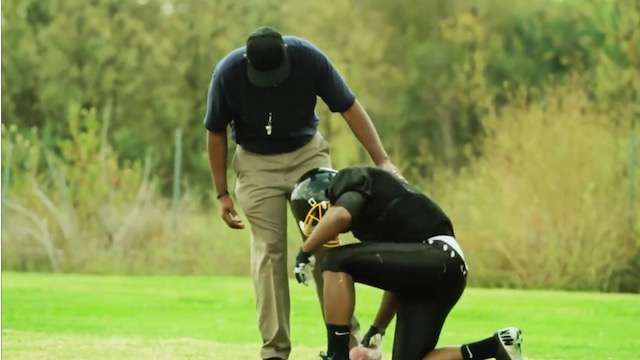Golfer Embraces Fan With Down Syndrome Whose Yell Caused Him to Lose Crucial Game-Making Shot
Rather than dwell on his disappointment over his lost playoff match, pro golfer Brandon Matthews made sure to embrace the fan who disrupted his final shot.

A high-tech mouthguard promises to be a game changer for treating and preventing sports-related concussions.
FITGuard, a device that alerts coaches immediately if a player should get medical attention for a head injury, comes from the mind of a former college athlete who suffered his own brain injury while playing college rugby in 2011.
FITGuard, a device that alerts coaches immediately if a player should get medical attention for a head injury, comes from the mind of a former college athlete who suffered his own brain injury while playing college rugby in 2011.
Anthony Gonzales once took a hit to the head so hard during a game that he couldn't remember which team he was on-in fact, he didn't even know he was hurt. His teammates eventually realized something was wrong and pulled him from the game, but he cut it dangerously close. Unfortunately, Gonzales' experience is pretty standard in college sports: athletes report less than half of their potential concussions to coaches and remain in the game when they should be treated to prevent permanent brain damage.
WATCH: "Man Therapy" Uses Humor To Target Serious Mental Health Issues
After recovering, Gonzales started thinking about a way to improve the system. He and fellow Arizona State University graduate Bob Merriman created FITGuard to let coaches and trainers know instantly if a player has likely suffered a concussion. Merriman calls it the brain's equivalent of a car's "check engine light."
The mouthguard is packed with sensors that measure the force of a blow to the head and calculates the chances of a concussion. LED lights in front change from green to red to alert the wearer and others around him if the hit was hard enough to warrant immediate medical attention.
Even if the chances of a concussion are low, FITGuard continues monitoring for symptoms for several minutes, sending a steady stream of information to a smartphone or tablet app to let coaches and parents know if the player should be pulled from the game for medical treatment.
The FITGuard is expected to be on the market sometime next year and will cost around $100 per mouthpiece.
(WATCH the FITGaurd video below) - Photo: FITGuard video
Send This Story To Your Team, Share It…
Be the first to comment